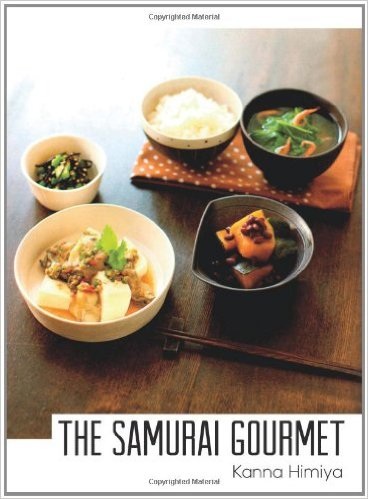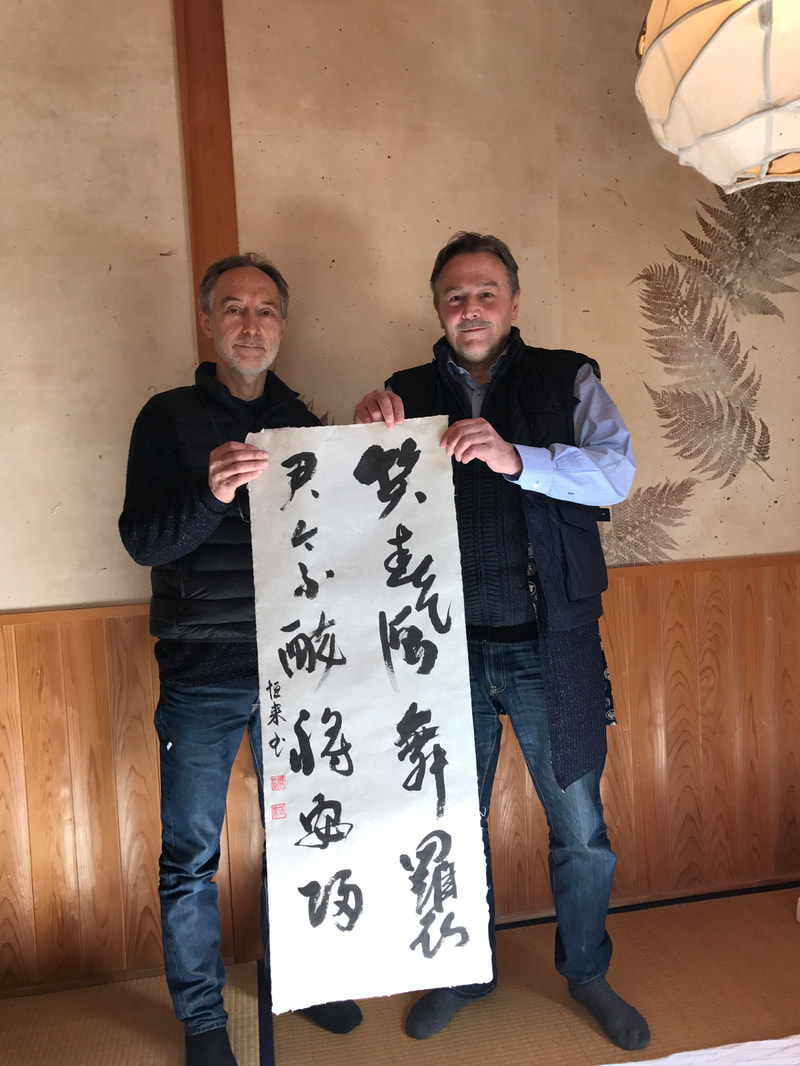Learn about the history, food culture, and recipes of the Samurai in The Samurai Gourmet, by Kanna Himiya. Also available in Japanese as 武士の食卓、非宮琴那
|
|
A poem is born, or reborn?A piece of calligraphy comes to life. Short version.
May 1987? My teacher Morioka Koshu paints a Tehon for our monthly Shodo magazine in the Sogeikai in the 1980s, and of course I have kept them all as a treasure. Feb 2017 30 years later I meet Rogier Uitenboogaart in the mountains of Kochi at Yusuhara, where he himself has been making Japanese Washi paper by hand for 30 years! April 2017 Almost exactly 30 years after I first saw the Tehon shown here, my friend Iwamoto-san at iWeave kindly presents me with the work I painted in February, wonderfully mounted on a scroll, which now hangs in my office. Here is my translation of the the Chinese poem: Laughing in the Spring breeze The dancer swirls in veils of silk. This is the time to drink up! How can you leave now, When we have hardly begun? I am not sure who wrote the original Chinese poem, but I have an idea that it was 白居易 Bai_Juyi, a Tang Dynasty poet from about 1200 years ago. A poem is born, and reborn across time and many communication platforms. https://en.m.wikipedia.org/wiki/Bai_Juyi AuthorWilliam Reed is a full time professor at iCLA (International College of Liberal Arts) Yamanashi Gakuin University in Kofu City, Yamanashi Prefecture, Japan. He is a 7th-dan in Aikido, and a Shihan in both Shodo and Nanba Jutsu. He teaches these arts at iCLA, in addition to a course on Spiritual Dimensions and Traditions in the Japanese Martial Arts. Detailed Profile on the About Page. Archives
October 2018
Categories |



 RSS Feed
RSS Feed